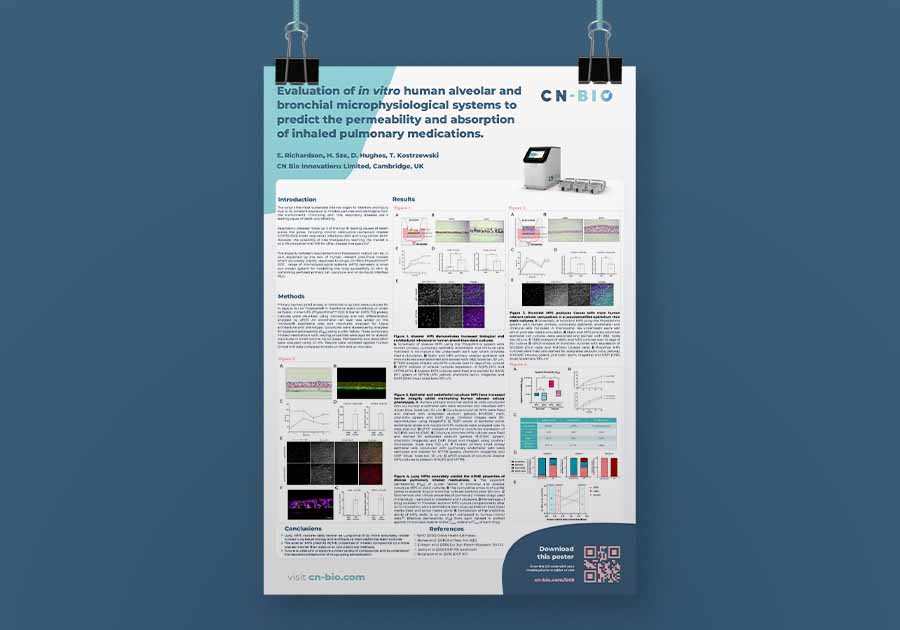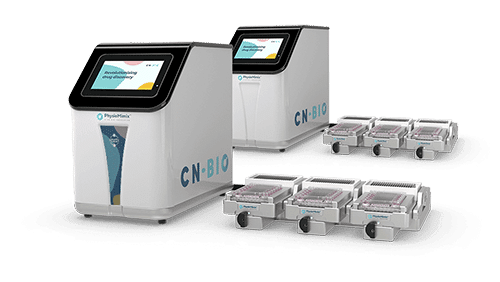Resource > Posters >
Evaluation of in vitro human alveolar and bronchial microphysiological systems to predict the permeability and absorption of inhaled pulmonary medications
Filed under:

The lung is the most vulnerable internal organ to infection and injury due to its constant exposure to inhaled particles and pathogens from the environment. Coinciding with this, respiratory diseases are a leading cause of death and disability.
Respiratory diseases make up 3 of the top 10 leading causes of death across the globe, including chronic obstructive pulmonary disease (COPD) (3rd), lower respiratory infections (4th) and lung cancer (6th)1. However, the possibility of new therapeutics reaching the market is only 3% compared to 6-14% for other disease therapeutics2 .
The disparity between requirement and therapeutic output can be, in part, explained by the lack of human relevant preclinical models which accurately predict responses to drugs. CN Bio’s PhysioMimix® OOC range of microphysiological systems (MPS) represent a novel but proven system for modelling the lung successfully in vitro by combining perfused primary cell coculture and air-to-liquid interface (ALI).


